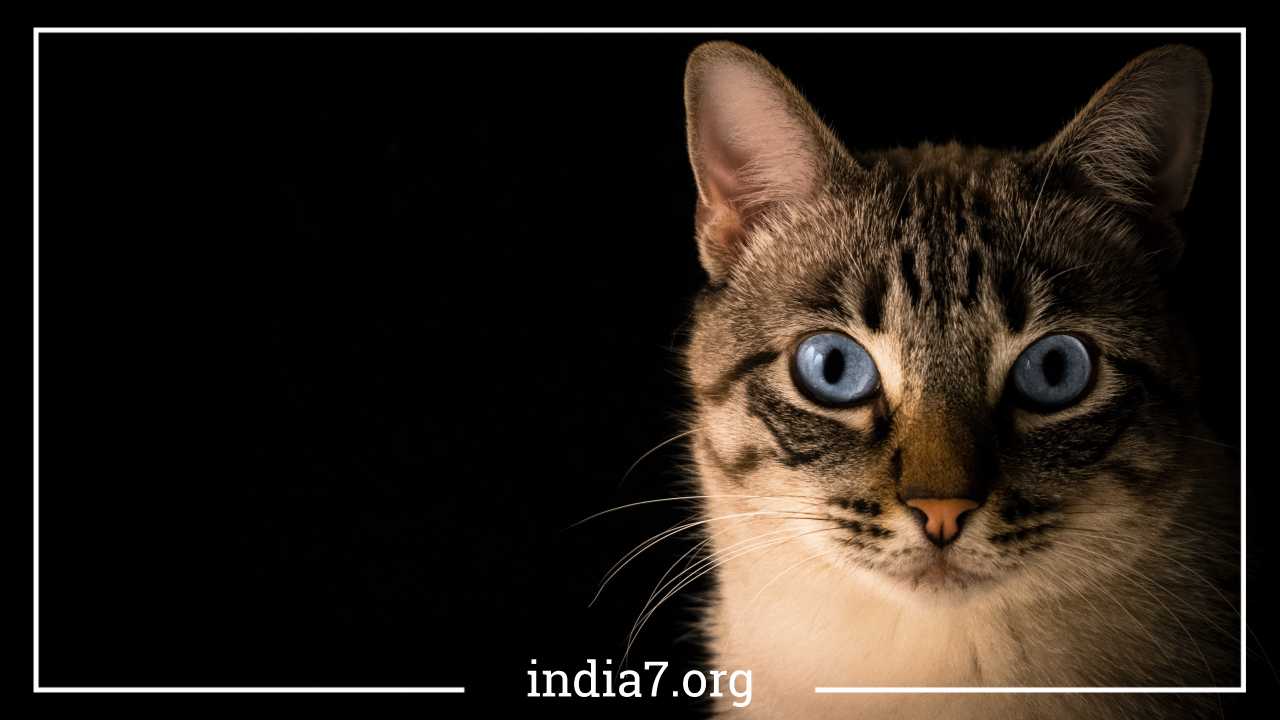Comprehensive Guide to Responsible Cat Breeding: Considerations, Ethics, and Best Practices

Cat Breeding
The decision to breed your cat is not one to be taken lightly. While it may seem exciting to have a litter of adorable kittens, there are numerous factors to consider before embarking on the journey of cat breeding. In this comprehensive guide, we will delve into the essential aspects of cat breeding, offering insights and advice to help you make an informed decision and navigate the process responsibly.
1. The Time Commitment
Breeding cats is a significant time commitment that extends far beyond the birth of the kittens. It’s not just a matter of letting nature take its course; it involves careful planning, monitoring, and daily care. Here’s what you need to know about the time commitment:
- Post-Birth Care: Once the kittens are born, you’ll need to invest a substantial amount of time daily. The breeding area must be kept clean to ensure the health and hygiene of the mother cat (queen) and her kittens. Cleaning includes regular litter box maintenance and cleaning of the nesting area.
- Monitoring Development: In addition to cleanliness, you must closely monitor the kittens’ development. This includes observing their weight gain, ensuring they are nursing adequately, and keeping an eye out for any signs of illness or distress. Early intervention is crucial in addressing health issues.
- Socialization: Kittens require socialization to become well-adjusted pets. Spending time playing with and handling the kittens is essential for their social development. This also helps them get accustomed to human interaction, making them more adoptable.
- Weaning and Litter Training: As the kittens grow, you’ll need to oversee the weaning process, which involves introducing them to solid food. Furthermore, you’ll need to start litter training them, which requires patience and consistent effort.
2. Space Requirements
Adequate space is another fundamental consideration when breeding cats. Here’s why space matters:
- Breeding Environment: The queen and her kittens need a clean, quiet, and safe environment. Make sure you have a suitable space where the queen can give birth and nurse her kittens without disturbances. This space should be free from drafts and kept at a comfortable temperature.
- Room for Play: Cats, especially kittens, are naturally curious and playful creatures. They require space to explore, play, and develop their physical and mental abilities. A cramped living situation can lead to stress and behavioral issues in both the queen and her kittens.
- Access to Outdoors: If you intend to allow your cats outdoor access, consider whether your living situation allows for safe outdoor exploration. Outdoor access comes with its own set of responsibilities, such as ensuring the area is secure and free from hazards.
3. Family Approval and Household Dynamics
Bringing a litter of kittens into your home can affect your family dynamics and living situation. Here’s what to keep in mind:
- Family Consensus: It’s crucial to have everyone in your household on board with the decision to breed your cat. Keeping kittens locked up isn’t ideal for their development, and it’s essential that all family members support and contribute to the care and socialization of the kittens.
- Children and Pets: If you have children or other pets, consider how they will interact with the kittens. Young children may need supervision around fragile kittens, and other pets should be introduced carefully to ensure everyone’s safety and well-being.
4. Responsibility and Planning
Responsible cat breeding involves meticulous planning and a commitment to the welfare of the cats involved. Here are important factors to consider:
- Rehoming Plan: Before breeding, you should have a solid plan for finding suitable homes for the kittens. This plan should include screening potential adopters to ensure they are responsible and committed to caring for a cat throughout its life.
- Contingency Plans: Be prepared for the unexpected. Sometimes, people who initially express interest in adopting a kitten may change their minds. In such cases, you must decide whether you can provide a permanent home for any kittens that don’t find adoptive families.
- Ethical Considerations: Responsible breeding means prioritizing the health and well-being of the cats involved. Avoid breeding your cat for profit or without a legitimate reason. Breeding should aim to improve the breed’s health and conform to ethical breeding standards.
5. Education and Preparedness
To embark on the journey of breeding cats, you must educate yourself thoroughly and be prepared for various scenarios. Here’s what you need to know:
- Birth Process: Familiarize yourself with the entire birth process, from recognizing the signs of labor to assisting with the birth if necessary. Learn about the stages of labor, what to expect during delivery, and how to provide support to the queen.
- Emergencies: Be prepared for potential complications during pregnancy and birth. Learn how to handle emergencies such as breached births, dystocia (difficult birth), or the need for a caesarean section (c-section). Having a vet on call who is experienced in feline reproduction is essential.
- Supplies: Gather all the necessary supplies in advance. This includes items like clean towels, a heating pad, a scale for weighing kittens, and appropriate medical supplies for emergencies.
- Feeding and Nutrition: Understand the nutritional requirements of pregnant and lactating queens. Proper nutrition during these stages is vital for the health of both the queen and her kittens. Consult with a veterinarian for guidance on feeding.
6. Financial Considerations
Breeding cats can be more expensive than many people realize. Beyond the initial costs of acquiring the breeding pair and setting up a suitable breeding environment, there are ongoing financial considerations:
- Quality Food: High-quality cat food is essential for the health of the queen and her kittens. This includes kitten-specific food for the growing kittens and a well-balanced diet for the queen during pregnancy and lactation.
- Veterinary Expenses: Even if the pregnancy and birth go smoothly, you’ll need to budget for routine veterinary care, including deworming and vaccinations for the queen and kittens. Additionally, you should be prepared for unexpected medical expenses that may arise.
- Registration and Documentation: If you are breeding purebred cats, there may be registration fees and documentation requirements associated with maintaining the breed’s pedigree.
7. Ethical Considerations
Ethical breeding practices are crucial to ensure the health and well-being of cats. Breeding solely for profit, without regard for the welfare of the cats, should be avoided. Here are some ethical considerations:
- Health Screening: Responsible breeders conduct health screening for potential genetic conditions that may affect the breed. This helps prevent the passing on of hereditary diseases to offspring.
- Breeding Standards: Breeding should aim to improve the breed’s health and temperament while adhering to breed standards. Ethical breeders are dedicated to preserving and bettering the breed.
- Overpopulation: One of the most critical ethical considerations in cat breeding is the issue of overpopulation. The world is already grappling with an overabundance of cats in need of homes. Breeding should only be pursued with the aim of enhancing the breed or for specific, well-considered reasons.
8. Finding Suitable Homes
Finding responsible and loving homes for the kittens is a primary responsibility for a cat breeder. Here are some tips on finding suitable homes:
- Screening Potential Adopters: Develop a comprehensive questionnaire for potential adopters. Ask about their experience with cats, their living situation, and their commitment to providing proper care. Conduct interviews and home visits to ensure a good match.
- Educate Adopters: Provide information and resources to educate adopters about cat care, including nutrition, grooming, and healthcare. Encourage them to keep their new pet indoors to protect it from outdoor dangers.
- Contracts and Agreements: Consider having written contracts that outline the responsibilities of both the breeder and the adopter. This can include spaying/neutering requirements, return policies, and health guarantees.
9. Responsible Breeding Practices
Responsible breeding extends beyond the initial decision to breed. Here are some best practices:
- Record Keeping: Maintain meticulous records of the breeding process, including breeding dates, birth records, medical histories, and vaccinations. This documentation is essential for tracking the health and lineage of your cats.
- Breeding for Health: Prioritize the health and well-being of your cats. Avoid breeding cats with known genetic issues, and work with a veterinarian to ensure the health of your breeding pair.
- Socialization: Begin socializing the kittens from an early age. Exposure to various stimuli, people, and experiences can help create well-adjusted and confident cats.
- Breeding Associations: If you’re breeding a specific breed, consider joining a reputable breeding association. These organizations often have codes of ethics and can provide valuable support and networking opportunities.
10. Final Remarks
In conclusion, breeding cats is a significant undertaking that requires careful planning, dedication, and a commitment to the welfare of the cats involved. The decision to breed should not be made lightly, and it’s essential to consider all aspects of cat breeding, from the time commitment to the ethical and financial considerations.
If you are genuinely passionate about breeding cats and have the resources, knowledge, and support to do so responsibly, it can be a rewarding endeavor. However, always prioritize the health and well-being of your cats and the kittens they produce. Be prepared for the unexpected and have contingency plans in place.
Remember that the world already has a surplus of cats in need of homes. Responsible breeding should aim to improve the breed and promote the well-being of cats, rather than contributing to overpopulation. If you decide that breeding is not the right choice for you, consider alternatives such as adopting a cat from a shelter or rescue organization to provide a loving home to a cat in need.



